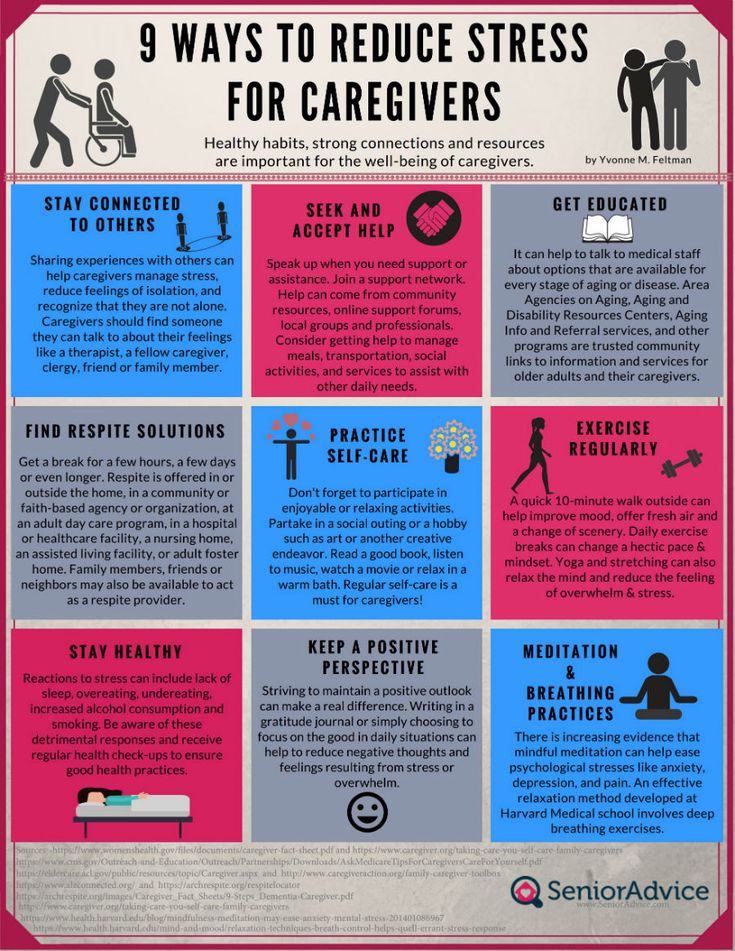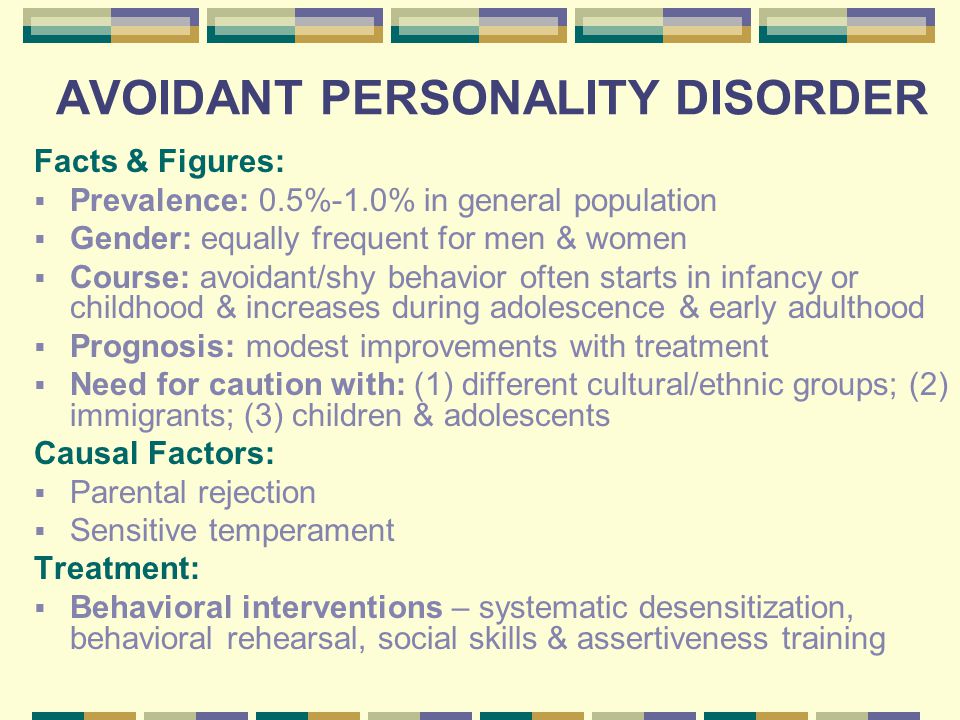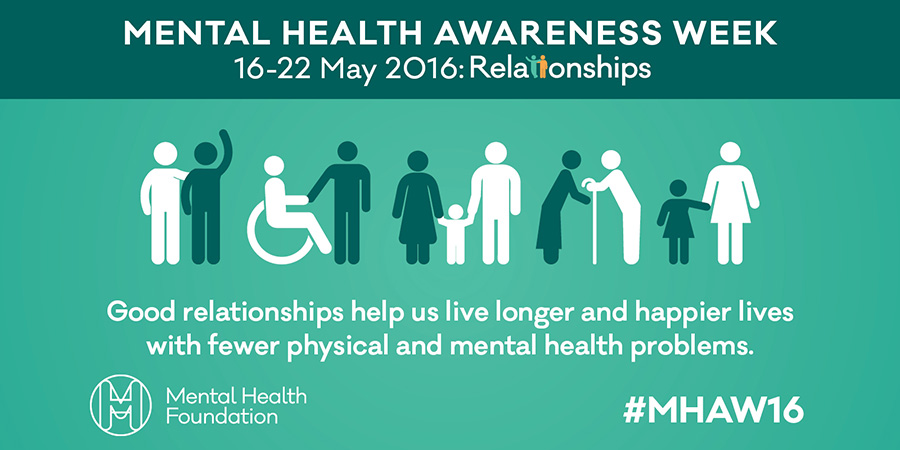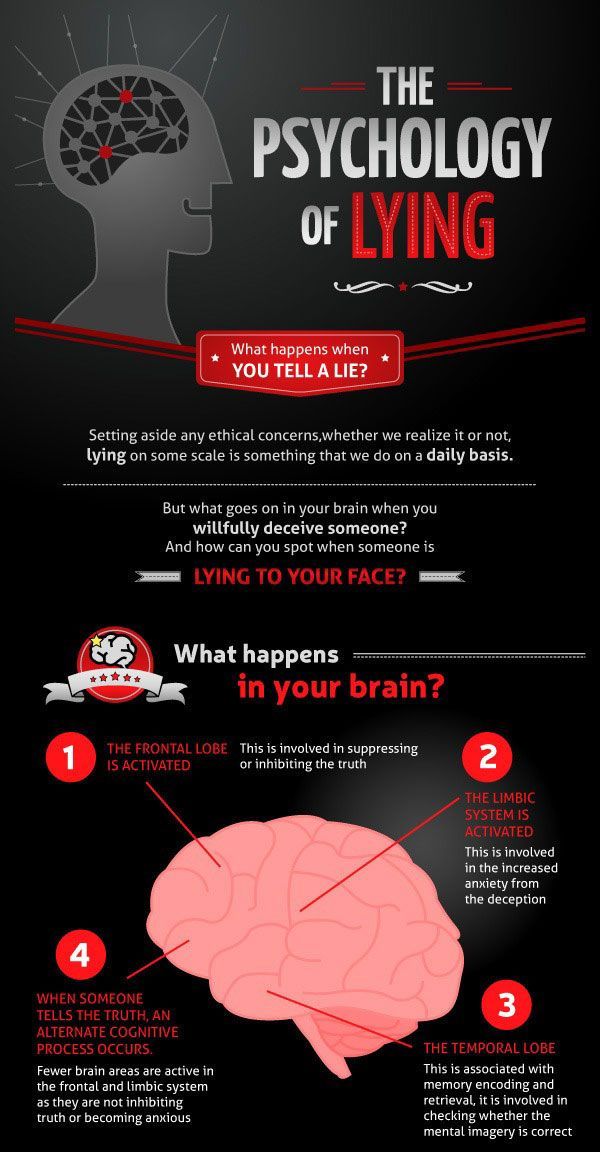My boyfriend is schizophrenic
Dealing with Schizophrenia in a Romantic Partnership
Schizophrenia may add complexity to an already complex relationship, but you can still have a strong and satisfying partnership.
When it comes to love, not everything comes easily. But adding in a mental health condition like schizophrenia to the equation can add challenges you may not have anticipated.
Researchers estimate about 1% of Americans live with schizophrenia. Although environmental and genetic factors play a large role in the development and diagnosis of schizophrenia, anyone can develop this chronic condition.
Yes, it likely requires lifelong treatment, but it is treatable.
It’s essential to understand the misconceptions and stigma surrounding this condition so you can support both your partner and yourself through treatment and keep your loving relationship strong.
Remember: It’s nothing like we’ve seen in the movies.
Spending time with someone in a relationship (and especially living with them) can reveal all kinds of behaviors and traits previously unseen.
If you think your partner is exhibiting symptoms of a mental health condition, it’s important to know the signs.
Schizophrenia tends to develop in the late teens and into the 30s. Men are believed to develop symptoms earlier in life.
Some possible symptoms of schizophrenia include:
- delusions (believing things that aren’t true)
- hallucinations (seeing, hearing, or feeling things that aren’t real)
- disorganized speech or behavior (difficulty organizing thoughts or appearing illogical to others)
- abnormal movement of the body (e.g., repetitive movements or appearing catatonic, or “frozen”)
- lack of emotion or expression
- withdrawing from social situations
- difficulty processing information, making decisions, or paying attention
You may notice changes in:
- behavior
- emotions
- eating or sleeping habits
- interactions with friends and family
These changes don’t mean they necessarily have schizophrenia, or even a mental health condition at all. But it could mean that they need evaluation by a professional to make sure.
But it could mean that they need evaluation by a professional to make sure.
Early intervention can be key to getting effective help. Broaching a topic like this needs understanding and care.
Ways to discuss a partner’s mental health
- Be aware of stigma. Many people are reluctant to seek help due to stigma and embarrassment. Letting them know how common issues with mental health can be may help. Let them know there’s no judgment — it can affect anyone.
- Educate yourself. Learning common misconceptions and ways to begin a diagnosis and treatment plan can help start a dialogue.
- Don’t diagnose them. Be open to helping them determine what challenges they’re facing and how they can find support.
- Bring empathy. Any conversation asking for or offering help should always be empathetic and understanding.
- Revisit if needed.
If early conversations don’t go well, take a break and revisit the conversation later.

Learning more about the condition is especially important. Read up on symptoms, causes, and treatment paths to understand how to support them effectively.
Understanding their point of view will be critical in maintaining a loving relationship.
If your partner has received a diagnosis of schizophrenia, more factors come into play, including:
- treatment
- advocacy
- building a support network
Treatment options
Schizophrenia treatment often has multiple facets including antipsychotic drugs, which can treat and prevent symptoms like delusions and hallucinations.
Psychotherapy can also help with anxiety, social and work issues, and learning how to cope while living with symptoms.
You’ll want to be prepared to help them determine the best treatment plan for their needs. Learning about side effects and effectiveness can help ready you for life after diagnosis.
Being an effective ally and advocate
Being an advocate for your partner will include helping them deal with outside stigma as well as potential internalized stigma that may cause more issues, like depression or suicidal ideation.
Be ready to advocate for your partner’s care and potential treatment setbacks. Finding the right treatment plan can take time. Being ready to pivot in care or advocate for different care may be necessary.
Part of this may entail educating yourself about treatment options, potential medications, and their interactions or side effects.
If needed, help your partner keep records and log schizophrenia symptoms and potential medication side effects. It can help their healthcare team be fully informed of any changing behavior and needs.
Don’t forget to care for yourself, too. It’s easy to prioritize someone else’s well-being over your own. Eating well, staying active, supporting your own mental health, and having your own support network will allow you to be at your best.
How to get support
Your partner will benefit from a network of people who can support them in various ways. This could include:
- friends and family who understand the condition, treatment plan, and stigma
- case managers and vocational rehabilitation professionals
- support groups like those offered by the National Alliance on Mental Illness (NAMI), Students with Psychosis (SWP), Schizophrenia Spectrum Support, and Schizophrenia Alliance
- specialty care support, like coordinated specialty care (CSC) or assertive community treatment (ACT)
- in emergency situations, you may need to call their care team, a crisis hotline, or local hospital or psychiatric care center
Crisis and suicide resources
If you or someone you know is considering suicide or self-harm, help is available right now:
- Call the National Suicide Prevention Lifeline 24 hours a day at 800-273-8255.

- Text “HOME” to the Crisis Text Line at 741741.
- Not in the United States? Find a helpline in your country with Befrienders Worldwide.
- If it’s an emergency, call or visit your local emergency room or psychiatric care center to speak with a mental health professional.
A mental health diagnosis adds a layer of complexity to an already complex relationship.
What already needs consistent work and communication now may need even more. But with the right treatment and support, your relationship can be fulfilling for both of you.
Relationship challenges with mental health conditions
- Setting expectations for household duties and other chores may become more challenging.
- Finances can become more complicated if one partner isn’t able to work due to symptoms or treatment.
- Communication about emotional and physical needs may become different or strained.
- Medication side effects can cause unexpected behaviors, changes in mood, or changes in libido.

- Treatment plans and setbacks can cause stress for both partners. Guilt, shame, and resentment may become issues.
Tips for managing these challenges
- Maintain honest communication. Be an active listener by asking clarifying questions, communicating your own needs honestly, and approaching disagreements with patience.
- Manage treatment expectations. Anticipate roadblocks and missteps in treatment. Don’t expect immediate results. Rather, be aware that treatment will likely be lifelong and change.
- Be patient with intimacy. Medications and stress can have side effects that disrupt sex. Be patient and free of judgment. Consider talking with your partner’s healthcare team to address these side effects.
- Don’t stop treatment to repair other relationship issues. Your partner may be tempted to stop a medication or therapy if it seems to be affecting your relationship or intimacy.
 This will be counterproductive to the overall treatment plan.
This will be counterproductive to the overall treatment plan. - Consider relationship therapy. Couples therapy and individual therapy can help both you and your partner as you encounter challenges.
Maintaining a loving and supportive relationship after a diagnosis of schizophrenia will not be without challenges. But with the right support, education, and a solid partnership, it can absolutely work.
A treatment plan that includes effective medication and therapy is the first step. Alongside that, you’ll need to find good support for you both so you can effectively communicate your needs and deal with stigma (both external and internal), feelings of guilt or shame, and roadblocks in treatment.
For some unique perspectives on living with schizophrenia, consider listening to our “Inside Schizophrenia” podcast.
10 Ways to Deal with a Schizophrenic Partner
In This Article
Living with a partner who has a mental illness can come with challenges. They may experience difficult symptoms, such as mood swings, irritability, or loss of interest in usual activities.
They may experience difficult symptoms, such as mood swings, irritability, or loss of interest in usual activities.
While different mental health conditions can interfere with your relationship, knowing how to deal with a schizophrenic partner can be incredibly challenging, given the severity of this mental health condition.
Here, learn some strategies for managing schizophrenia in relationships.
Before diving into how to be in a relationship with a schizophrenic, it is helpful to understand the definition of schizophrenia.
What is schizophrenia?It involves symptoms including hallucinations, in which a person hears or sees things that aren’t there, and delusions, which are strong beliefs that are not supported by any evidence.
As the National Institute of Mental Health explains, schizophrenia can cause a person to appear out of touch with reality.
Some other symptoms of schizophrenia are as follows:
- Odd behaviors
- Distorted thoughts
- Paranoia
- Irrational fears
- Reduced feelings of pleasure
- Lack of emotional expression
- Loss of motivation
- Difficulty with attention and memory
Because schizophrenia can cause a person to lose touch with reality, it is labeled as a psychotic disorder.
Someone with schizophrenia may hold irrational beliefs, such as being convinced that they have superhuman powers and can communicate directly with God.
Given the symptoms of schizophrenia, it is pretty clear that schizophrenia and relationships can be challenging.
What causes schizophrenia?Understanding the underlying causes of schizophrenia can also be helpful when learning how to deal with someone with schizophrenia.
There is quite a bit of evidence that genetics can increase the risk of schizophrenia, but there is not one single gene that causes it. What is known is that some genes are associated with the condition, and it can run in families.
Genes are not the only factor that contributes to schizophrenia. Genetic risk factors can interact with environmental problems, like poverty, significant stress, and nutritional problems.
When genes interact with a poor environment, it can lead to the development of schizophrenia.
Finally, differences in brain structure and function can contribute to schizophrenia. People who have other risk factors, such as family history or environmental stressors, may experience brain changes that lead to the development of schizophrenia.
While the causes of schizophrenia may not tell you how to be in a relationship with a schizophrenic, they give you a greater understanding of the disorder, so you know what your partner is going through.
8 Signs your partner has schizophreniaIf you think you have a spouse with schizophrenia, you are probably looking for some information that confirms your suspicions. Consider the signs below, which may point to a potential schizophrenia diagnosis:
- Your partner talks about hearing voices that are not present.
- Sometimes when your partner is speaking, you have difficulty understanding because they jump from one topic to the next.

- Your partner’s thinking seems illogical or bizarre.
- You notice that your partner makes strange movements.
- At times, your partner appears very emotionally flat. For instance, they may not react to a seemingly exciting event, such as you getting a promotion at work.
- It seems your partner cannot make plans or have no motivation to accomplish anything.
- Your partner may seem to experience little to no pleasure.
- Your partner has extremely bizarre beliefs, such as a strong belief that the government tracks their behavior.
Of course, you should not attempt to diagnose your partner with a severe mental health condition, but the signs above suggest that your partner may be living with schizophrenia. In this case, professional intervention is likely warranted.
Also Try: Is My Boyfriend Schizophrenic QuizHow schizophrenia affects marriages and partnerships
It’s not simple to learn how to deal with a schizophrenic partner because mental health can significantly impact relationships.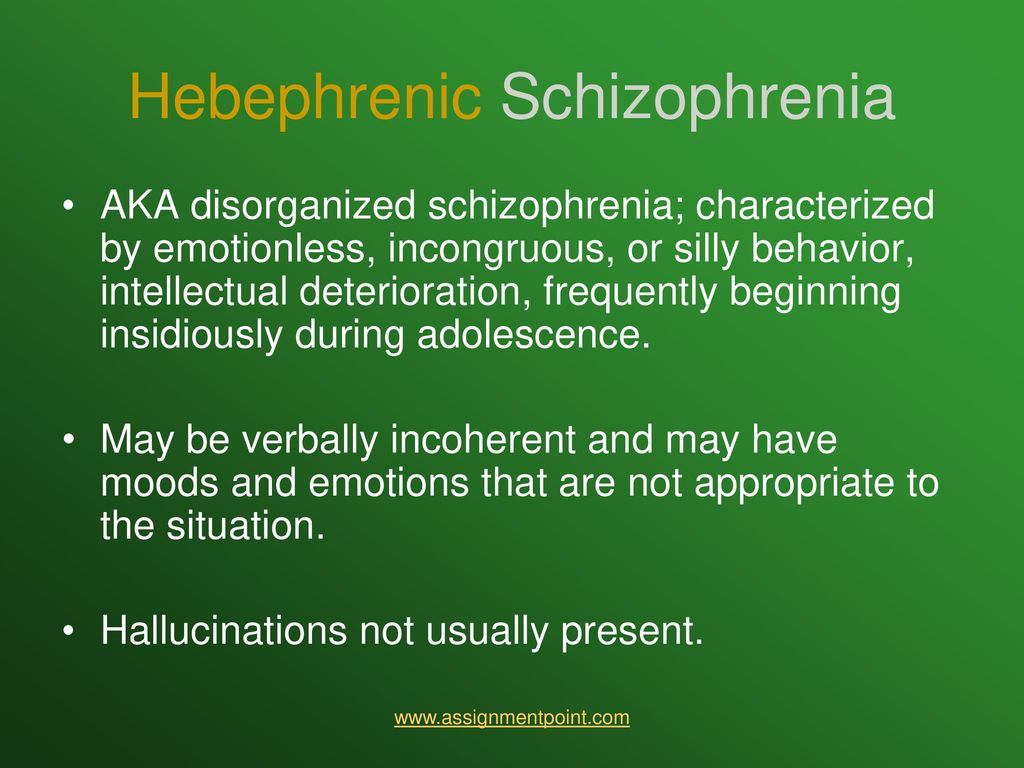 After all, your partner with schizophrenia may appear to be out of touch with reality at times, which can make it challenging to communicate with them.
After all, your partner with schizophrenia may appear to be out of touch with reality at times, which can make it challenging to communicate with them.
Given the symptoms associated with schizophrenia, the condition can affect relationships. For instance, the condition can sometimes be so severe that a person with schizophrenia cannot maintain a job or fulfill responsibilities like paying bills or caring for children.
Loving a schizophrenic may also mean dealing with behaviors that don’t always make sense. In addition, your partner may seem emotionally unavailable or as if they do not care about the relationship.
At times, your partner may also be uninterested in doing fun activities together or participating in family life, which can be pretty hurtful.
In some cases, a relationship with a schizophrenic can seem confusing or frightening because they may display bizarre behaviors, and their thought processes may be entirely irrational.
This can lead to conflict and even a divide between you and your partner or spouse with schizophrenia.
Finally, you may find that schizophrenia in relationships leads to a lack of intimacy. The lack of pleasure and emotional flatness that come with the disorder can make it challenging to connect intimately.
Some of the medications used to treat schizophrenia can reduce sex drive.
In addition, research related to schizophrenia and love relationships has shown that even unmedicated patients with mental health conditions experience reduced pleasure during sex and a reduction in sexual activity compared to those without schizophrenia.
The challenges above can make being in a relationship with a schizophrenic quite taxing at times but there is still hope if you wish to work towards it.
10 ways to deal with a schizophrenic partner in a relationshipSchizophrenia can be a severe and challenging mental health condition, but there are ways to cope. Consider the following ten strategies for how to deal with a schizophrenic partner in a relationship:
Consider the following ten strategies for how to deal with a schizophrenic partner in a relationship:
It can be easy to blame yourself or feel that you are falling short when your partner doesn’t communicate well with you or struggles with intimacy. Remember, these are symptoms of the disorder and do not indicate anything you have done wrong.
Related Reading: Psychological Flashcards for Relationships2. Develop your social support system
When living with a schizophrenic partner becomes difficult, you need someone you can turn to for support. Develop a network of understanding friends and family members you can count on when you need to chat or have a listening ear.
3. Seek therapyAs noted above, communication can be challenging when you have a spouse with schizophrenia. Working with a couple’s counselor can help you learn to manage schizophrenia in relationships.
Regular counseling sessions provide you with a safe setting for processing relationship issues and learning to communicate more effectively with each other.
Related Reading: What Is a Mental Health Counselor4. Consider a support group
Sometimes, you can feel rather alone when living with a schizophrenic partner. In these instances, a support group provides an excellent method for how to deal with a schizophrenic partner.
Communicating with others in the group can provide valuable information about dealing with schizophrenia marriage problems, and participating in the group reminds you that you are not alone in your struggles.
5. Practice self-careAs the saying goes, you cannot care for others if you don’t first care for yourself. This means that it is essential that you take time for self-care.
This might mean developing a regular exercise routine, making time for one activity you enjoy each day or committing to a healthy nutrition plan. When you take care of yourself, you are likely to find that the task of loving a schizophrenic is less challenging.
When you take care of yourself, you are likely to find that the task of loving a schizophrenic is less challenging.
Watch this video to develop your own self-care action plan easily:
6. Respond in a helpful way to their irrational (and psychotic) thoughtsIt can be challenging when your partner with schizophrenia holds on to their psychotic beliefs, even with evidence that they are not valid. Do not argue or try to convince your partner that they are wrong; be prepared to be calm and respectful.
Instead of arguing when your partner is sharing irrational thoughts, you might respond with, “I see the situation differently than you do.”
Related Reading: 20 Steps to Becoming a Supportive Partner7. Be prepared in the case of an emergency
You may know how to deal with a schizophrenic partner on your own in day-to-day life, but you may need to call for help in the case of a crisis.
For instance, if your partner expresses suicidal thoughts or begins acting out on hallucinations to the extent that they are in danger, you may need to call a local crisis hotline or 911. If you call 911, be prepared to tell the dispatcher that your spouse or significant other has schizophrenia.
They may need to be transported to the hospital for emergency psychiatric treatment.
8. Insist that your partner seek treatmentUntreated schizophrenia makes it very difficult for someone to have healthy relationships. Symptoms of the illness may lead to erratic behaviors, including abuse against a partner.
For this reason, your partner must accept and comply with treatment. Be as supportive as possible by accompanying them to appointments and praising them for accepting help.
9. Don’t expect treatment to help immediatelyTreatment is important for someone who has schizophrenia, but that doesn’t mean it will be perfect or immediately cure your partner.
You will need to be patient to give medications time to work and recognize that treatment will be a life-long process for your partner.
There may be times when your partner does well, in addition to times when they regress and experience more severe symptoms.
10. Help your partner set small goalsWhen your partner is in the early stages of treatment or experiencing a relapse of schizophrenia symptoms, big goals can be overwhelming, such as returning to work full-time or finishing a degree program.
Help your partner set small, manageable goals to help them progress. For instance, you may create a goal to go for three walks per week together to encourage your partner to engage in more activity.
Or, you may give them a goal of helping with one chore per day, such as washing the dishes after dinner, to get them more involved in daily activities. Over time, as symptoms improve, you can add additional, and perhaps larger, goals.
It’s not the end of the roadLearning how to deal with a schizophrenic partner may seem challenging, but it is not impossible. Schizophrenia is a severe mental health condition that can cause problematic symptoms.
Schizophrenia is a severe mental health condition that can cause problematic symptoms.
Still, individuals with schizophrenia can learn to cope with their symptoms and have happy relationships with treatment and support.
My boyfriend is schizophrenic - GoRabbit
You fell in love with unconsciousness! He is the one with whom butterflies flutter in the stomach around the clock, and the two of you have your whole life ahead of you. But then he announces: I am a schizophrenic. It's like a blow to the head. What to do next: leave it and forget it forever or learn to live with this diagnosis?
Anastasia
We met only six months ago on a dating portal. At the first meeting they liked each other and began to meet. At first I did not notice anything unusual in him, but then he began to behave very strangely: he drank a lot, smoked incessantly, talked at length about good and evil and the magic of numbers.
As a result, he confessed that he had schizophrenia, the second working group of disability. His father also had schizophrenia.
His father also had schizophrenia.
Now he is in the dispensary. Before that, he was lying there two years ago, everything was not bad and they even wanted to shoot a group, but it didn’t happen.
For the first month I visited him with my mother, brought him parcels and cigarettes. I remember how during the first visit he was delighted with me! Pretty quickly he was on the mend, his mind was getting in order, he was thinking sensibly. They already wanted to discharge him, but again it did not happen: he suddenly became ill again, or rather, terribly ill. He began to carry nonsense, does not sleep at night, fights with everyone. As a result, they even stopped letting me go on dates with him. His mother walks, but they don't let me in. After the last visit, my mother told me that he was completely inadequate: he swears, screams, doesn’t want to hear anything about me at all. Such sudden aggression scares me, but I love him and believe in recovery.
Daria
From the first days of my acquaintance, my young man seemed a little strange to me. He could read the Bible to me on the phone for two hours or excerpts from his favorite book (intercity), in the dead of winter he walked in a windbreaker and sneakers, sometimes during a conversation he abruptly changed the subject and started talking about something completely extraneous.
He could read the Bible to me on the phone for two hours or excerpts from his favorite book (intercity), in the dead of winter he walked in a windbreaker and sneakers, sometimes during a conversation he abruptly changed the subject and started talking about something completely extraneous.
Actually, all these oddities did not bother me much, and I told myself that he was just an unusual person. In addition, he is very smart, well-read and so on.
But a couple of days ago he confessed to me that he had schizophrenia (as he said, “in a mild form”). I pretended that there was nothing to worry about, but in fact I was in shock. I can't leave him, I love him. But I know very little about this disease and now I don’t understand what to expect from him.
Arina
We met on the Internet, mutual sympathy arose at the first meeting. We've only been dating for a month, but it seems like I've known him all my life. At the last meeting, he admitted that he was ill, constantly taking medication and his diagnosis was schizophrenia. He is 35, wants to start a family and have children. I understand that this is a big risk! But he is very sorry. He is a wonderful person, very smart and kind. I don't know whether to continue the relationship.
He is 35, wants to start a family and have children. I understand that this is a big risk! But he is very sorry. He is a wonderful person, very smart and kind. I don't know whether to continue the relationship.
There is no definite answer to the question of whether to continue a relationship with a person diagnosed with schizophrenia. Here everyone makes a decision on their own, says psychotherapist Dmitry Isaev . After all, schizophrenia is the most mysterious psychiatric disease.
“Until now, it is not known for certain what is its cause and what are the mechanisms of development. Therefore, treatment is associated only with the elimination of symptoms during the onset of attacks - acute psychoses, ”he adds.
However, there is good evidence that schizophrenia begins more frequently between the ages of 18 and 25. And if the patient is diagnosed with such a diagnosis at a more respectable age, then it is better to play it safe and get advice from an experienced and respected psychiatrist.
The disease is chronic, that is, this diagnosis is permanent
At the same time, there may be no attacks for many years, and the person will practically not differ from others. This largely depends on the quality of the selected medical treatment and on the patient's compliance with the psychiatrist's instructions.
Exacerbation often occurs in the off-season - in autumn and spring
An attack is accompanied by a state characterized by suspicion, isolation, aggressive actions are possible, aimed at loved ones and oneself. The patient reports the impact that they have on him, hears "voices", his speech becomes incomprehensible and pretentious.
If an attack occurs, a psychiatrist should be contacted immediately for emergency help. It won't go away on its own!
Hereditary predisposition to schizophrenia has not been proven , you should not be afraid that the disease will develop in your children.
Whether to continue the relationship is up to you
In any case, you should not be guided by public opinion and advice from relatives and strangers. And the feeling of guilt here is a bad helper. Weigh everything on a sober head, do not succumb to momentary emotional impulses. Doubt is the most difficult condition, and the sooner a decision is made, taking into account all the circumstances of this situation, the better. For you and your boyfriend.
And the feeling of guilt here is a bad helper. Weigh everything on a sober head, do not succumb to momentary emotional impulses. Doubt is the most difficult condition, and the sooner a decision is made, taking into account all the circumstances of this situation, the better. For you and your boyfriend.
Previous articleBitch notes: how to manipulate a man
Next articleQuit your job? Easy
5 main differences between Englishmen and Russian men
Dark room. A young English couple is making love. Suddenly the gentleman jumps up, turns on the lamp and asks: "Darling, were you in pain?" - Not. — But… but why…
Gorabbit is a place that gathers people who want to sort out their feelings. Agree, you can be a smart, healthy, purposeful and quite successful person, but one day you will meet with your powerlessness in the face of the world of emotions, desires and intricate relationships.
[email protected]
Popular
Fresh
90,000 “My husband is schizophrenic, and everyone advises to endure”: Revelations of the victims of home violenceKomsomolskaya Pravda
Investigations: Family
Alexander Budaeva 9000 9000 12 May 2020 14:00
A woman told how long she could not get out of a toxic relationship. And the psychologist commented on every stage of the life of this married couple0005
And the psychologist commented on every stage of the life of this married couple0005
This was not Olga's first marriage. They lived well with the previous husband, but in the end they decided to leave, the son Mitya stayed with his mother, this option suited everyone. Dispersed quietly and peacefully without mutual claims.
A year passed, new relationships did not develop, promising suitors did not line up, and the young woman became depressed: they say, I am already 27, I have a two-year-old child in my arms, my life is over.
A friend introduced her to a "great guy" Yegor. It’s not that Olga liked him very much - he was closed, embittered, but there was nothing to choose from, and the eternal feminine “sip and warm, maybe it will be corrected” came to mind.
SUSPICION
“He promised never again, but I believed”
Olga admits: the first “bells” sounded even when they met - quarrels from scratch, incredible awareness of her thoughts and feelings. Later it turns out that Yegor was “rummaging around” in her phone and, with the help of quarrels, tested his girlfriend for stress resistance and complaisance. But the girl, instead of putting him in his place, for some reason decided to show humility and slowed down all his antics.
Later it turns out that Yegor was “rummaging around” in her phone and, with the help of quarrels, tested his girlfriend for stress resistance and complaisance. But the girl, instead of putting him in his place, for some reason decided to show humility and slowed down all his antics.
Soon she and her son from her first marriage moved into his apartment. It was then that it turned out that Yegor's character was even worse than it seemed at first glance.
- He could yell at Mitya, although he was then 2 years old, and he did not really understand what he was doing wrong. I didn’t interfere and thought that my child needed a strict male hand, everything is for the better, ”Olga admits. - Then Yegor did not allow Mitya to buy a birthday present - they say I do not work, but he has no money. I still bought a gift, but I gave it on the sly, we had some kind of sad holiday with him.
A little later, the kid forgot to flush it in the toilet at night, and Egor made a terrible scandal: he yelled at the boy for about 20 minutes, after which he spanked him hard and painfully on the buttocks.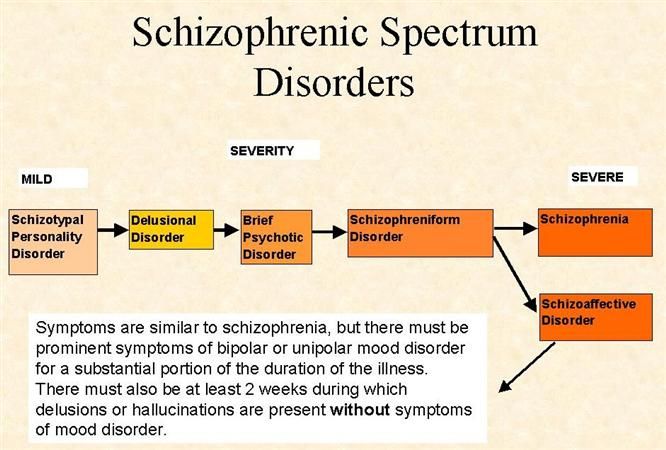 Olga flared up, said that she would immediately pack her things and leave. Yegor apologized for a long time, promised that "never again", and for some time turned into an exemplary daddy.
Olga flared up, said that she would immediately pack her things and leave. Yegor apologized for a long time, promised that "never again", and for some time turned into an exemplary daddy.
Comment by psychologist Tatyana Loshchinina:
- The first "bells" are very important! At this time, the abuser "tests" his future victim on how she accepts his violation of her personal boundaries. As a rule, at this stage, relationships are ended by those women for whom their own calmness and emotional comfort are valued higher than the relationship with a partner that begins. And those women for whom the value of relationships is initially high, most likely, will not attach any importance to these first “calls”, writing them off for any external circumstances (fatigue, bad weather, magnetic storms, etc.).
ACCEPTANCE
“She is to blame for everything”
Egor never really touched Mitya physically again, but this did not save the boy from constant nagging and aggression from his stepfather. Olga and Yegor got married, and he stopped restraining himself.
Olga and Yegor got married, and he stopped restraining himself.
At first, these were unexpected mood swings that could be provoked by just some phrase said on TV - a man bristled, could be silent for weeks or leave in an unknown direction without warning. Parents advised her to learn to "smooth sharp corners in relationships."
Then light jolts rained down on Olga, waving her hand during quarrels. She was silent and tried once again "not to shine", not to anger the faithful. And she taught her son the same thing - they increasingly played together in his room so as not to disturb Yegor. But he still always found a reason for discontent.
Comment by psychologist Tatyana Loshchinina:
- This is a common practice for relationships with an abuser. After all, in order to talk about the problems that have arisen, both sides need to want to establish equal partnerships and agree on controversial issues. Talking brings clarity, but it doesn't always help build relationships. Indeed, in the process, you can notice that the partner does not seek to understand your position, feelings and problems, but, on the contrary, demonstrates obvious disrespect or devalues everything that is said to him. Therefore, in such relationships, a woman instinctively tries not to give the abuser reasons for irritation and anxiety in advance.
Indeed, in the process, you can notice that the partner does not seek to understand your position, feelings and problems, but, on the contrary, demonstrates obvious disrespect or devalues everything that is said to him. Therefore, in such relationships, a woman instinctively tries not to give the abuser reasons for irritation and anxiety in advance.
Cruelty towards children is very revealing Photo: Nikolai ALEKSANDROV
TORG
He beat me, asked for forgiveness and beat me again
- When he beat me for the first time, he just left. Before that, he called his mother, ”recalls Olga. - When she arrived, I asked her to calm Mitya, and I myself went to the bathroom. When she came out of there, she was no longer there, the child was alone, the door was open. I called her, of course, and she told me that she knows everything about her son, and he is still the best for her. And she advised me to be patient.
Yegor again asked for forgiveness, swore he promised that it would not happen again. Olga believed, bore him a daughter, and soon he beat her again.
Olga believed, bore him a daughter, and soon he beat her again.
- All this time I believed that it was my own fault - there was no need to provoke him, and little by little I withdrew into myself, - Olga recalls. - With the birth of my daughter, I realized that I didn’t want to live like this anymore, so I tried to rebuff him.
The son saved the woman from severe injuries. Mitya was already 8 years old, he picked up the phone, dialed the number and began to shout: "Grandfather, come, Yegor is killing his mother." Hearing this, Egor, as he was, in slippers and home clothes, left the house.
For half a year a woman with two children lived with her parents, all this time her husband begged for forgiveness, convinced her that it was impossible: she only embarrasses her parents with her presence, and she has nowhere else to go, and who needs her with two children. And now everything will be fine at home, he understood everything and corrected himself.
Olga believed again, and 3 months later history repeated itself. She took the children, a small bag with the essentials and went to her parents. Forever this time.
She took the children, a small bag with the essentials and went to her parents. Forever this time.
Comment by psychologist Tatyana Loshchinina:
- As the Russian practice of psychological assistance to victims of domestic violence shows, a woman returns to the relationship with the aggressor up to 7 times before she leaves him forever. There can be many reasons for this, some of which are related to the value of relationships and the hope that happiness is still possible, and the other - to external circumstances that affect the possibility of a woman's independent life. No one can prevent a woman from returning to the aggressor, except for herself. Therefore, victims of domestic violence are helped only after they themselves seek help.
DESPAIR
“The fact that we lived on the ground floor saved me from jumping out of the window”
Three months flew by, as if it were one day, Olga was talking to someone, doing something, and she herself caught with horror in the eyes of her parents a slight condemnation: they say, she herself chose a husband for herself, where did she look? Although none of them ever reproached her for anything.
- I didn't want to live, and the only thing that saved me from going out the window was that we lived on the first floor, and the windows were taken away with bars, - Olga admits.
Once the parents took the children for a walk, and left her at home alone - they say, rest, sleep in silence, we will not be in a hurry.
- Here I am standing at home in slippers, closing my eyes, opening it, and I'm already in the middle of Novo-Sadovaya, in the same slippers and a jacket thrown over home clothes. Some guy yells at me who almost ran me over with his car,” the woman says.
She still doesn't know what happened and why her consciousness turned off, but she is very grateful to that driver - he didn't leave her on the street, put her in the car, found out where she lives and brought her to her apartment. At this time, her parents returned from a walk, and he told them what had happened. After that, Olga was not left alone.
Comment by psychologist Tatyana Loshchinina:
- As a rule, a situation of violence is very stressful for a woman and can cause her mental trauma. The trauma experienced can be accompanied by post-traumatic stress disorder, which adversely affects not only the mental state of the victim, but also her physical health.
The trauma experienced can be accompanied by post-traumatic stress disorder, which adversely affects not only the mental state of the victim, but also her physical health.
In Russia, women return home up to 7 times in a row to their husbands who abuse them Photo: Igor CHABANENKO
FEAR
“Mother hit him with her head against the wall as a child”
All things of Olga and the children were left in Egor's apartment, attempts to take something away from there turned into scandals. The police did not help, the lawyers shrugged, and Yegor laughed in her face and promised to take his daughter away.
Divorce courts and the "sharing" of children lasted endlessly, Yegor shook all the dirty linen in front of strangers, brought some friends as witnesses, and he himself established surveillance of his former - near the kindergarten and at home they were constantly guarded by some cars, and strangers took pictures on the street. Yegor personally approached the grandmother of the children several times when she was walking with a stroller on the street. No matter what he was thinking, but as soon as he saw that he was being filmed, he immediately left.
Yegor personally approached the grandmother of the children several times when she was walking with a stroller on the street. No matter what he was thinking, but as soon as he saw that he was being filmed, he immediately left.
Olga started having panic attacks, first once a week, then every other day, and then every hour. It was possible to remove them only with medicines. Yegor, meanwhile, tried to convince everyone that she was crazy.
- And I managed to find out that it was he who was in a mental hospital after school. His mother in childhood in a fit of rage hit her little son's head against the wall, and after that he began to have mood swings and bouts of cruelty. My uncle is a psychiatrist, he told me that most likely my husband is a schizophrenic, and this is not treated, moreover, judging by his behavior, over the years he only gets worse, says Olga. In court, however, it was not possible to prove this - there were no records of Yegor's stay in a psychiatric hospital.
Comment by psychologist Tatyana Loshchinina:
- A panic attack occurs as an unconscious response of the body to a possible danger situation presented by a person. Panic attacks can be the result of experienced fear in a real situation. As soon as a person loses a sense of security, the body "turns on the alarm" in the form of a panic attack. In a situation where her husband beat Olga, she experienced a real threat to her life. And later, meeting with him and even thinking about him began to bring Olga feelings of her own impotence, a hypothetical risk of repeating a dangerous situation, causing her an attack of uncontrollable fear and anxiety.
REVIVAL
“I'm not the only one, and I'm normal”
The courts sided with Olga: the children stayed with her, the father can see his daughter once every 2 weeks. A young woman admits that only a few months ago she stopped looking around when she went out into the street. And she stopped blaming herself for everything that happened. She was assisted in this by the experts of the Knowledge Stops Gender Violence project, where social counsellors, lawyers and psychologists worked with her at the same time:
And she stopped blaming herself for everything that happened. She was assisted in this by the experts of the Knowledge Stops Gender Violence project, where social counsellors, lawyers and psychologists worked with her at the same time:
- When I was talking about what happened to me, for the first time I felt that I was not being judged. Everyone was completely on my side. Moreover, they seemed to know in advance what I would say next, as if they had heard such stories more than once, - says Olga. - So it turned out. With their help, I realized that I was not to blame for anything. Moreover, I'm not alone, I'm not a leper, you don't have to shy away from me, because I'm normal.
Olga still goes to group classes once every 2-3 months to feel close to people with whom you can talk about everything without embarrassment. Olga's main headache is her children: what exactly did the little daughter remember about living together with her dad and will the teenage son ever stop blaming her for what they all had to endure.
Comment by psychologist Tatyana Loshchinina:
- In situations of domestic violence, children are always victims, even when they were simply witnesses of violence. Psychological work needs to be done with them to help them cope with traumatic memories and experiences, to process emotions that are beyond accepting, which are most likely forced out by their consciousness into unconscious areas of the psyche. Of course, it is impossible to erase from the memory of a child the violence that was used against him and his mother. But the task of psychological assistance is to help the child transfer the situation from the category of trauma to the category of life experience.
Experts say that it is possible to help a victim of domestic violence only when she consciously asks for helpPhoto: Aleksey BULATOV Each story, like each individual life, is undeniably unique. But domestic violence has its own patterns that make these stories kind of similar. For example, there is the concept of the cycle of violence introduced by the American researcher Lenore Walker. She suggested that domestic violence is a cycle of four stages that repeats with increasing frequency: first, an increase in tension (a period of quarrels and cumulative discontent), then a breakthrough stage of violence (the violent incident itself, for example, a beating), then reconciliation (the so-called "honeymoon"). when the perpetrator of the abuse is kind and even loving) and, finally, a period of calm (which gives the injured party reason to believe that everything can be fine and that the abuse will not happen again). The cycle of violence well reflects the real psychology of the situation of violence, and we encounter this pattern in almost every appeal.
She suggested that domestic violence is a cycle of four stages that repeats with increasing frequency: first, an increase in tension (a period of quarrels and cumulative discontent), then a breakthrough stage of violence (the violent incident itself, for example, a beating), then reconciliation (the so-called "honeymoon"). when the perpetrator of the abuse is kind and even loving) and, finally, a period of calm (which gives the injured party reason to believe that everything can be fine and that the abuse will not happen again). The cycle of violence well reflects the real psychology of the situation of violence, and we encounter this pattern in almost every appeal.
You can recognize a person's propensity for violence by paying attention to the so-called "red flags" in his behavior. For example, it is very revealing how a person behaves in a conflict situation. If he shows strong aggression, if he takes out his anger on things or objects (for example, he beats a table or wall with his fist, throws and spoils things), on animals or other people (especially those who are weaker, for example, on children), if he systematically refuses take responsibility for conflicts, if he blames everyone around and anyone, then these are very disturbing signals. It is also very indicative how acceptable violence is for a person: what judgments he makes about violence (for example, he takes the side of the authors of violence), what preferences he himself has (for example, he likes to watch films with scenes of cruelty and the like). You can read more about how to recognize the risks of violence in intimate relationships on our project website.
It is also very indicative how acceptable violence is for a person: what judgments he makes about violence (for example, he takes the side of the authors of violence), what preferences he himself has (for example, he likes to watch films with scenes of cruelty and the like). You can read more about how to recognize the risks of violence in intimate relationships on our project website.
Rebuff to the author of violence is not only possible, but also necessary. Protecting yourself is mandatory for one simple reason: there must be responsibility for every action, and if this action is violent, then the responsibility must be symmetrical. Inaction in response to violence creates a sense of impunity for the aggressor, which makes the situation even more dangerous. One of the ways to rebuff the author of violence is to apply to law enforcement agencies, to the court, to bring the case to its logical conclusion so that the aggressor is punished. If you turned to the police, then you need to go all the way - do not withdraw the application, do not renounce your testimony, otherwise this will also create the illusion of impunity and permissiveness for the aggressor.
Another way to end the situation of violence is to end the relationship with its author, and in case of a threat to health and life, urgently leave the common place of residence. In this case, the absolute priority should be safety and life, not things and property. However, if you understand that the situation threatens with violence, it will not hurt to prepare things in advance: it is worth collecting the so-called alarm bag, in which documents, valuables, keys, money, the minimum necessary supply of personal belongings will be folded in advance. You can also agree in advance with relatives, relatives or friends that in a situation of danger they will be able to temporarily host you. You can also transport some of the necessary things, documents and valuables to them in advance. If this is not possible, then all kinds of crisis centers, social hotels, hostels will help, the contacts of which are also better to get in advance. At the same time, a charged mobile phone with a positive balance must be with you.
“What if he gets better?” - women in situations of domestic violence often ask this question to themselves and to us. And in fairness, we always answer: this is possible. However, this requires, firstly, a strong motive to refrain from violent behavior, and secondly, a very large and complex internal work. In Russia, as in other countries of the world, there are psychologists who work with men who demonstrate aggressive, controlling and violent behavior. Such psychotherapeutic work can indeed be effective, and a specialist can indeed help his client to give up violence. However, as practice shows, aggressors very rarely voluntarily seek help, and even when they do, they continue to work even more rarely. In general, the experience of committing violence is always destructive for the aggressor, always traumatizing the author of the violence. Often this experience can be painful and even undesirable for the abuser. But whether the aggressor is ready to truly change can only be shown by the fact that he is ready to move from words (apologies and promises) to deeds (seeking help and working with a specialist).
Violent behavior can indeed be a manifestation of a person's psychopathology. However, the authors of violence are not always the owners of some serious disorders. The author of violence can not only be “normal”, from the point of view of everyday logic and even medical examination, but also engage in helping activities - work as a doctor, psychologist, policeman, and so on. On the other hand, a quick-tempered, aggressive person does not always have to be the author of violence, because temper and aggressiveness are about emotions, and violence is always an action. Emotions of aggression do not necessarily get violent realization, this is always the choice of a particular person in a particular situation. What distinguishes the author of violence is, perhaps, a specific value system that accepts violence as acceptable, applicable, or even desirable.
SEE ALSO:
“He took me out into the field and shot me with a gun”: the sisters of the deceased Samarchan woman found her diary with descriptions of torment in marriage they already say that the woman drank, wandered and even lost her daughter because of this (details)
“I didn’t scream, I thought it was my own fault”: how a Samara woman who became a victim of sexual violence in Italy gets out of depression
The girl went abroad to paint and study, but got caught in the net of a man with a criminal past (details)
“Yes, I will kill her!”: a single mother was beaten by noisy neighbors, and then she was reported to the police
Woman beat cancer, but suffered because she asked to turn off the music at three in the morning. Now she had to leave her hometown (details)
Now she had to leave her hometown (details)
Age category of the site 18+
The online publication (website) is registered by Roskomnadzor, certificate El No. FS77-80505 dated March 15, 2021
Acting EDITOR-IN-CHIEF - NOSOVA OLESIA VYACHESLAVOVNA.
I.O. chief editor of the site - Kansky Victor Fedorovich
Messages and comments of site readers are posted without preliminary editing. The editors reserve the right to remove them from the site or edit them if the specified messages and comments are an abuse of freedom mass media or violation of other requirements of the law.
EDITORIAL ADDRESS: Samara branch of CJSC Publishing House "Komsomolskaya Pravda". Lesnaya street, 9, Samara, 443100 Contact tel. +7 (846) 270-69-10. Mail [email protected]
Exclusive rights to materials posted on the website www.kp.ru, in accordance with the legislation of the Russian Federation for the Protection of the Results of Intellectual Activity belong to JSC Publishing House Komsomolskaya Pravda, and do not be used by others in any way form without the written permission of the copyright holder.

